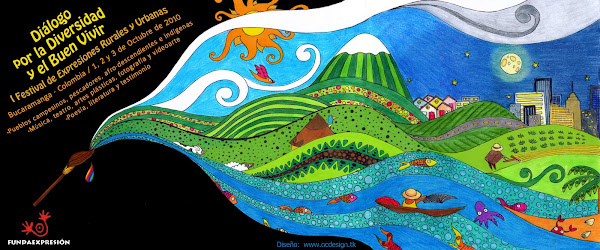COUNTRY AND CASE STUDY REPORT : COLOMBIA-“Women reclaim solidarity, agro-biodiversity and cultural identity”
Claudia Gimena Roa
FUNDAEXPRESIÓN (Colombia)
www.fundaexpresion.org/Email: roankine@telecom.com.co / fundaexpresion@gmail.com
Special thanks to Adam J. Rankin, for his collaboration in the co-investigation of this report.
Context of agriculture and rural development in Colombia.
It is sadly paradox, that Colombia, a country that is privileged with an immense patrimony in cultural and biological diversity, with all the ranges of agro-climatic landscapes, with a coastline conformed of both the Caribbean and Pacific ocean, with a tradition of peasant, indigenous, afro-descendent and fisher-folk people who have a vocation to produce abundant and healthy food, is now contrastingly facing conditions of hunger, malnutrition and poverty, and that food-aid programs[1] are evermore institutionalised as a governmental policy.
[1] Relief and food-aid programs in Colombia have been highly criticized by NGOs, communities and indigenous authorities, particularly because of their ignorance of local peoples’ cultural practices, alteration of community governance structures, tendency to create food-dependency and the loss of agro-biodiversity due to the introduction of modified seeds, animal breeds and GMO contaminated food-stuffs. A more detailed discussion is given in the article: Revista Semillas No. 24/25, “Ni ayuda ni alimenta - Ayuda alimentaria en comunidades indígenas de Colombia”, Fernando Castrillón - Swissaid, Bogotá, June 2005.
View the complete text: http://www.esnips.com/doc/75cbb290-1e30-44a1-ba9a-7a51fe127027/COUNTRY-AND-CASE-STUDY-REPORT






